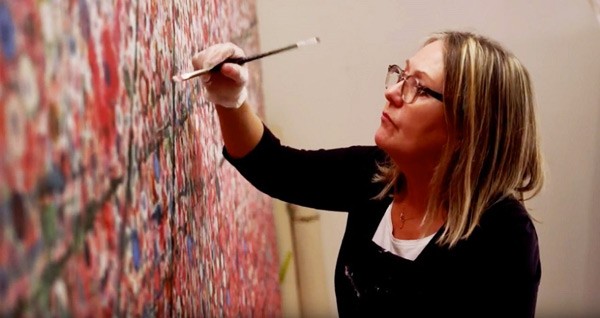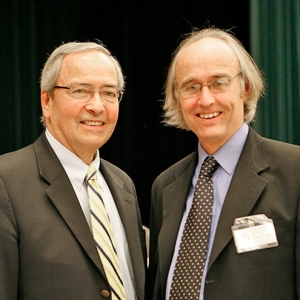Mackenzie’s husband, Donald MacPherson, BA 82, has also contributed to Canada’s national conversation — albeit in a very different field. As executive director of the Canadian Drug Policy Coalition, MacPherson leads a group of 70 organizations working to reform Canada’s drug laws.
MacPherson, who has penned numerous books and is an adjunct professor in Simon Fraser University’s Faculty of Health Sciences, is a leading critic of the so-called “war on drugs.”
Backed by cutting-edge research, he has pushed for decriminalization and harm-prevention measures like safe injection sites and heroin-assisted treatment.
After years working with marginalized populations in Vancouver’s Downtown Eastside, MacPherson wrote an influential report that called on the city to address its drug problems with a public health approach — rather than a punitive, criminal justice approach.
The strategy — known as the Four Pillars drug strategy — was championed by Vancouver’s mayor, Philip Owen, in the early 2000s. It has since been replicated in other cities, including Toronto.
MacPherson became a point man for the strategy, charged with communicating its ideas to the wider population.
Through public outreach and media interviews, he helped precipitate a seismic shift in how Vancouverites perceive drug addiction and drug-related issues, raising the bar for public discussions on the issue.
“You can’t just stand up in public meetings and say drugs are bad and that they should be illegal,” he contends. “People don’t buy that simplistic language anymore.”
MacPherson says the adult education strategies he learned as a student in Concordia’s Department of Applied Social Sciences — now the Department of Applied Human Sciences — helped him build consensus and persuade the public.
“Engaging the public about the Four Pillars drug strategy was probably the biggest adult education project that I ever did,” he explained. “We were trying to get people to understand that we had to do things differently.”

 Vancouver-based artist Landon Mackenzie was named one of the recipients of a 2017 Governor General’s Award in Visual and Media Arts in February.
Vancouver-based artist Landon Mackenzie was named one of the recipients of a 2017 Governor General’s Award in Visual and Media Arts in February.
 Donald MacPherson (left) and Mayor Philip Owen at a Four Pillars Coalition Meeting in winter 2001.
Donald MacPherson (left) and Mayor Philip Owen at a Four Pillars Coalition Meeting in winter 2001.
 A young Mackenzie-MacPherson family on a hike in 1984. | Photo: Landon Mackenzie
A young Mackenzie-MacPherson family on a hike in 1984. | Photo: Landon Mackenzie